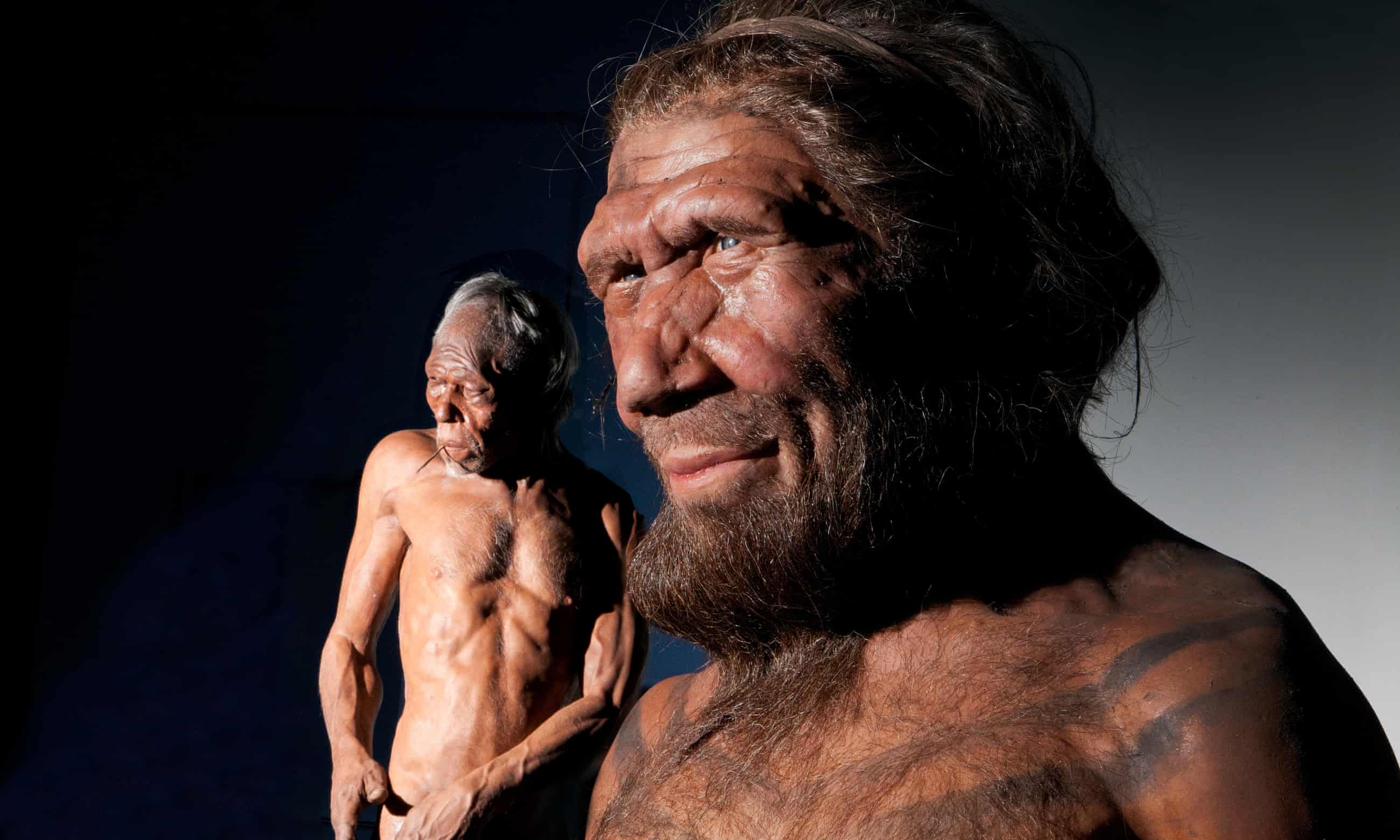Compare and contrast (l-r): Homo sapiens and a Neanderthal man. Photograph: Kevin Webb/
The Natural History Museum, London
Dutch twins Adrie and Alfons Kennis are showing their uncanny models in museums all over Europe. Adrie discusses how their creations are realised and the extreme reactions they can provoke
Identical twins with a combined age of 102, Adrie and Alfons Kennis are among Europe’s most sought-after – and controversial – hominid palaeo-artists: sculptors of lifesize reconstructions of early humans.
Working from a studio in their home town of Arnhem in the Netherlands, the brothers bring a surplus of exuberance to their creations, which are richly animated, expressive and – how better to put it? – human, even when they aren’t quite human. “If we have to make a reconstruction,” says Adrie, “we always want it to be a fascinating one, not some dull white dummy that’s just come out of the shower.”
In the 10 or so full-sized reconstructions completed during their career they have run the gamut of human history, from “Lucy” – the earliest known hominin fossil – to Homo erectus, Neanderthal man and, of course, Homo sapiens. Just last week, they put the finishing touches to a model for St Fagans National Museum of History in Wales. Due to be unveiled in October, it will be the third Kennis & Kennis work on display in the UK.
The process is exhausting. First, they rebuild the skeleton, sometimes using fossils from several different sites, with the help of computer scans and 3D printing. The skeleton is suspended with wire cables and the spine is made flexible using silicone cartilage between the vertebrae. “We use a kind of paraffin wax clay to sculpt the muscles,” says Adrie, “and we make arteries using small ropes which lie over the muscles.” Layers of another clay are then wrapped around the sculpture as skin, and a mould is made to replicate the sculpture in silicone. “We do five layers of silicone to make the skin colour,” explains Adrie, “because real skin is translucent.”
Read the rest of this article...

No comments:
Post a Comment
Note: Only a member of this blog may post a comment.